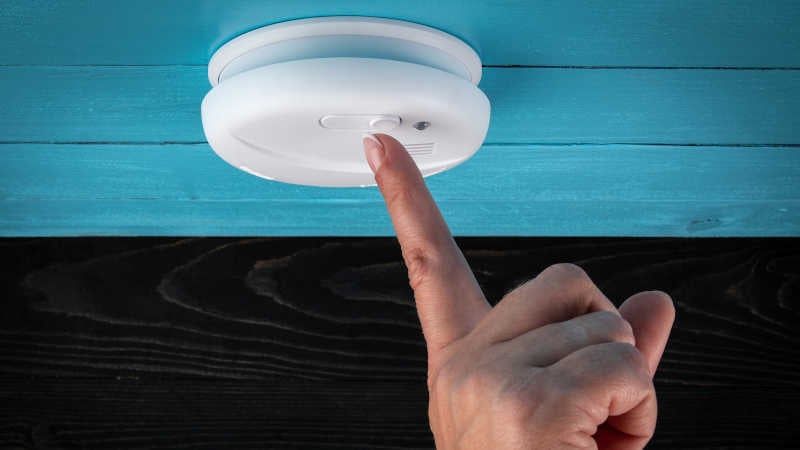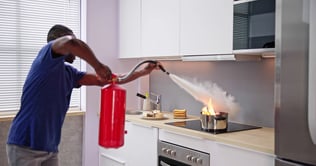Auto insurance is required in most states, but it’...
 A house fire can be one of the most frightening and dangerous experiences a person can face. In a matter of seconds, a small flame has the potential to rapidly spread, trapping individuals inside a home or building. There are steps you can take to increase your chances of escaping a house fire safely. Here are a few life-saving tips.
A house fire can be one of the most frightening and dangerous experiences a person can face. In a matter of seconds, a small flame has the potential to rapidly spread, trapping individuals inside a home or building. There are steps you can take to increase your chances of escaping a house fire safely. Here are a few life-saving tips.
Make sure you have smoke detectors installed in every room of your home. Smoke detectors are essential in every home. They alert you to the presence of smoke, giving you time to escape before the fire spreads. Test them regularly to ensure they are working properly. If you do not have smoke detectors installed, contact a professional to have them installed as soon as possible.

In the event of a fire every second counts. Having an escape plan can help you get out of your home quickly and safely. Make sure everyone in your household knows the plan and practice it regularly. Your escape plan should include multiple exit routes, so if one is blocked, you can still escape.
Smoke is toxic and can be deadly. If you encounter smoke while escaping stay low to the ground where the air is less dense. Smoke rises, so by staying low, you will reduce your exposure to toxic fumes and increase your chances of survival.
Before opening a door, check it for heat using the back of your hand. If the door is hot, don't open it. This means that there is likely a fire on the other side. If you can't exit through the door, look for another exit route.
If you have to move through smoke, use a wet cloth to cover your mouth and nose. This will help filter out some of the smoke and make it easier to breathe. If you do not have a wet cloth, use any available clothing or material.
If you live in a multi-story home or building, do not use elevators during a fire. Elevators can malfunction during a fire and trap you inside. Use the stairs instead but remember to stay low and check doors for heat before opening them.
If you are trapped inside your home during a fire, call for help. Call 911 and tell them your address and that you are trapped inside a burning building. If possible, give them your exact location within the building. If you cannot make a call, try to make noise to alert others that you are inside.
During a fire, it is easy to panic. However, panicking can make it harder to escape. Stay calm and focused and follow your escape plan. If you get lost or cannot find a way out, try to stay in one place where you can be easily found. 
A house fire can be a terrifying experience, but there are steps you can take to increase your chances of escaping safely. Take precautions before an incident occurs. Install smoke detectors, have an escape plan, stay low, check doors for heat, use a wet cloth to cover your mouth, do not use elevators, call for help and stay calm.
By following these life-saving tips, you can help protect yourself and your loved ones in the event of a fire.
To learn more about how a life insurance policy can protect those you love from a house fire contact a licensed life insurance agent at Leap Carpenter Kemp Insurance Agency. Call us today at (209) 384-0727 for a quote.
Auto insurance is required in most states, but it’...
No matter where you plan to travel, purchasing a t...
The majority of millennials are facing big debts, ...
Leap | Carpenter | Kemps Insurance Agency provides Commercial Business Insurance, Employee Benefits, Life and Health Insurance, and Personal Insurance to all of California, including Merced, Atwater, Los Banos, Mariposa, Madera, Fresno, Modesto, Turlock, and Stockton.
CA License Number 0646081 | Licensed to do business in California, Arizona, Hawaii, Idaho, Montana, Nevada, North Carolina, Oklahoma, Oregon, Virginia, West Virginia and Washington.
© Copyright 2023 Leap | Carpenter | Kemps Insurance Agency — Privacy Policy | Terms & Conditions.
Merced Office
3187 Collins Drive
Merced, CA 95348
Phone: (209) 384-0727
Additional Contacts
Toll Free: (800) 221-0864
Fax: (209) 384-0401